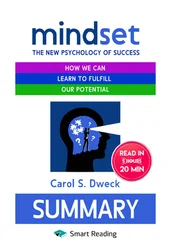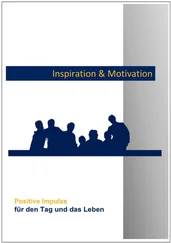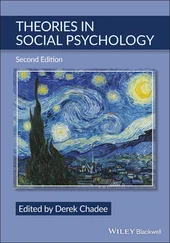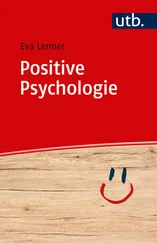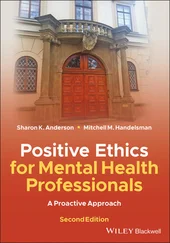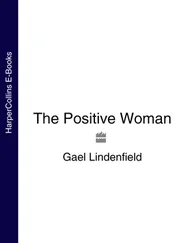An outcome of ambiguously valenced technology is social media. Social media take a variety of forms – Facebook, Twitter, and blogs, for example. They serve varied purposes and complement each other in terms of how they function in the world of psychological science, and in the world more generally. Such media can facilitate and speed up communication among people in distant locations, raise awareness of issues facing society, and give people forums for airing debates.
Scholars sometimes have resorted to the use of social media because they have believed that their contributions to the scientific literature have been blocked by editors or referees of journals. For example, articles critiquing work published in a journal may cause anxiety in editors (“Will the critique of authors publishing in my journal make me, as editor, look bad?”), and if the researchers whose work is critiqued serve as reviewers, these researchers sometimes may be able to sabotage publication by writing negative reviews. But truth be told, some scientists and other scholars who have written critiques on social media have never even tried to have their work published in conventional journals. Why? It is easier, less time‐consuming, and emotionally less painful to skip the peer‐review process. Anyone who publishes knows that this process can be lengthy, frustrating, and, sometimes, simply unsuccessful. One spends a lot of time trying to get one’s work published, to no avail (unless one goes to a journal that is perhaps not worth publishing in). The same can happen in any domain – authors of novels or short stories who cannot get their work published; or authors of op‐eds who have sent their pieces to one refereed outlet after another with no success.
Social media once seemed like a good and positive idea. When social media first were invented, the inventors likely did not think through and probably could not have anticipated – even if they tried – how social media might later be used for negative purposes: to undermine or at least distort free elections, to spread false and hateful propaganda, to serve as a basis for blatant cyberbullying, or even to undermine and sometimes destroy the careers of people one does not like, for whatever reason.
In the past, if a scientist or other scholar wanted publicly to criticize the work of another, they would have been obliged to have scholarly referees pass their judgment on the criticism. The scholars could not have gone public at the push of a button. But the referees who sometimes are detested also often have saved scientists and other scholars from making foolish and even destructive comments with no basis in fact. With the advent of social media, the push of a button on a phone or a computer can bypass the step of having referees. Echo chambers come to be established consisting of like‐minded, and often narrow‐minded individuals. These individuals may reinforce what has been said, no matter how obnoxious, damaging, or simply incorrect it may be. Crowd mindlessness–groupthink–takes over, with predictable results.
Some people may come to the viewpoint that anyone in their right mind would share the same “facts” or points of view – namely, their own point of view. Accompanying the increase in use of social media in psychological science and elsewhere (correlationally, not necessarily causally) has been, perhaps, a decrease in the shame people feel in attacking others personally, not just professionally. Falk (2018) has argued that “social media has fouled the virtual public square with bile and menace” (p. 3). Although this comment may seem strong, anyone who has been attacked on social media will understand where Falk was coming from.
Thus, social media present us with great opportunities but also serious challenges. Can we use them to showcase and enhance positive creativity or will our rush to get out our latest half‐baked thoughts lead us to use them in a way that fosters negative creativity? And will we recognize what creativity is positive and what creativity is negative?
I believe that there are useful principles for distinguishing between positive and negative creativity. They are the same principles that have contributed, over many centuries, to the generation of wise ideas: honesty, sincerity, transparency, acting toward others the way one would have them act toward oneself, and, of course, reflective analysis of the long‐term as well as short‐term consequences of one’s thoughts and actions.
How would one go about assessing positive creativity, if one indeed wanted to assess it? At a general level, instead of asking questions about things such as unusual uses of a paperclip or what word has something in common with a set of other words, one might ask people challenging questions like “What steps could be taken, which would not bust local or state budgets, to improve our secondary schools?” or “What are some things everyone could do to reduce effects of climate change, even if their individual efforts had only a minor effect?” or in our own field, “What are some ways in which psychological science could be applied to help address the current opioid crisis” (or any other crisis)? Students would be scored for novelty and quality of responses and only separately on the basis of their knowledge of the issue at hand. That is, knowledge is important for creativity, but possession of it does not guarantee creativity and much creative work is done by people who are not necessarily the most knowledgeable (Sternberg, Kaufman, & Pretz, 2002). Expertise can facilitate creativity, but it also can facilitate entrenchment and mental “change blindness.” They also would be scored, where applicable, for the potential positivity of their ideas.
It might seem that such assessments would require value judgments, and in testing, at least in many countries, test constructors often try to create measures that are seemingly more “objective.” But there are three factors to consider.
First, assessment of creativity, because creativity always occurs in a context (Plucker, 2017), inevitably requires value judgments. Second, when all is said and done, all tests involve value judgments – they often just hide them (Sternberg, 1997, 2016). When, for example, one asks students how to solve challenging math problems on an intelligence test or a college‐admissions exam, one is assuming that the skill in solving such problems is important, even for, say, a future English major, stage actor, or pianist. Third, if our students took tests based on the adaptive challenges of other cultures, they might look quite inadequate because their skills in solving such challenges, such as ice fishing or using natural herbal medicines to combat malaria, are lacking (Sternberg & Grigorenko, 2004). That is, all tests and their scoring involve value judgments, if not in scoring, then certainly in deciding what to measure, whether implicit or explicit.
The field of psychological science and other scientific fields, even in the face of some notorious examples of negative creativity – manufactured data, massaging of data, serious misinterpretations of data – need to enhance their emphasis on honest and transparent science, but not at the expense of creativity. But there is a risk that we will educate students in ways that enhance their analytical contributions but not their creative ones. Instead, as a field, scientists should simultaneously increase their emphasis both on honest and transparent analysis but also on positive creativity – doing research that not only is career enhancing, but that is field enhancing and potentially even world enhancing. We might ask ourselves what is the research we can do that will truly make a positive and meaningful difference to our field of endeavor?
If we don’t always succeed – and we won’t – at least we will have tried. The emphasis in the fields of science, on this view, should shift from creativity – which can be positive but also can be neutral or negative – to positive creativity, which will make our fields better, and that, potentially, will make the world a better place, even if just a tiny little bit. There are many examples, but certainly one example would be that of how to lead people to make better decisions in their lives, both for themselves and for others (Kahneman, 2013; Thaler & Sunstein, 2009).
Читать дальше



